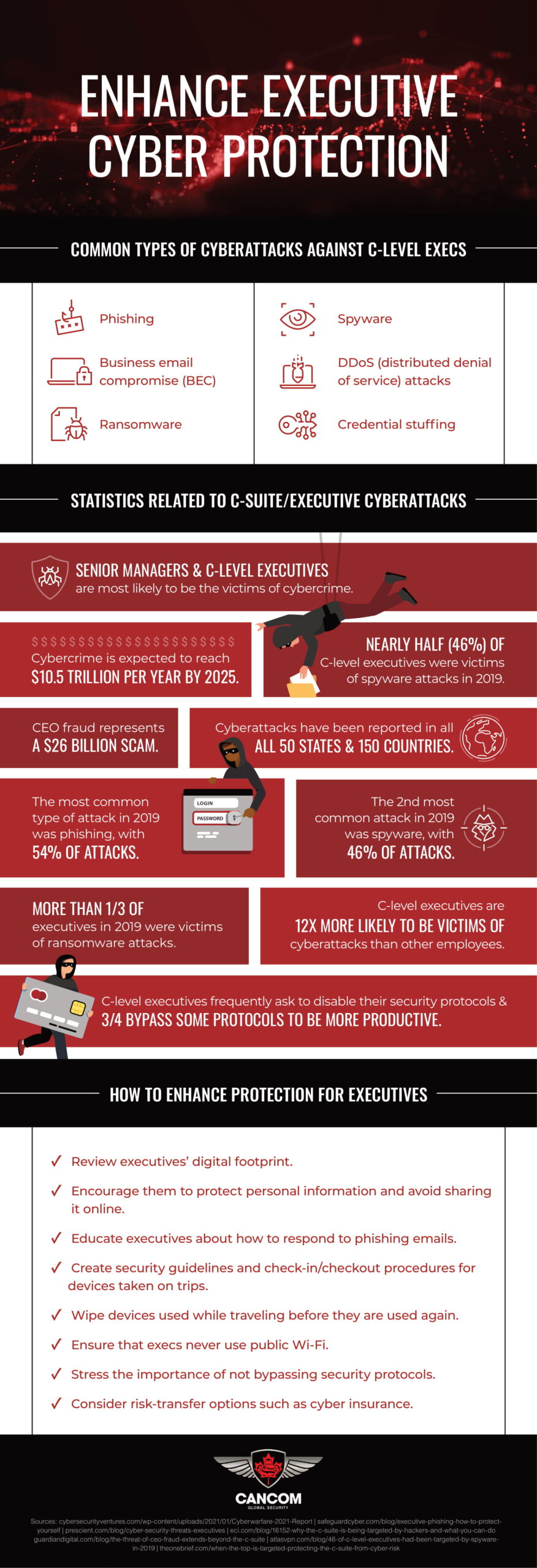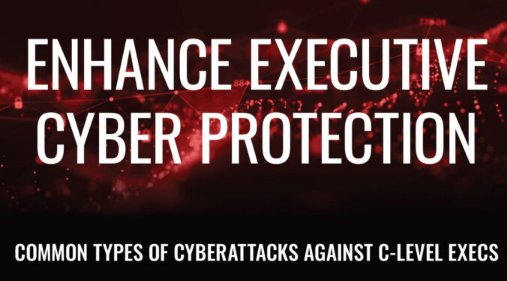The Threat Of Cybercrime Against Corporate Executives
Worried about the security of your business? It’s smart to be concerned, considering the statistics. Cybercrime — which includes phishing, ransomware, identity theft and fraud — has exploded by 600% since the COVID-19 pandemic began in December 2019.
Web-based cyberattacks and malware such as ransomware are among the most expensive types of cybercrime.A company can spend $2.4 million or more to defend itself.Further, one in three businesses victimized by malware are unable to access their data for at least a week.
Half of information technology professionals admit that their companies are vulnerable to ransomware and other types of attacks, and three-quarters of companies that have fallen victim to ransomware already had up-to-date endpoint protection. In the last year alone, 90% say that their businesses have been attacked by ransomware.
While anyone can become the victim of cybercrime, executives may be key targets for several reasons: Execs usually have greater access to sensitive information than lower-level employees. If they fall prey to a cyberattack, their entire company may be at risk. Fortunately, there are ways in which forward-thinking companies can help enhance the security of their executives’ cybersecurity and protect not only their personal data but the company’s data as well.
One of the first essential steps to take is to evaluate the executive’s digital footprint. Where does information about the executive exist? Review social media and networking sites, but don’t stop there. What sites does he or she use to shop? Has he or she posted information on blogging sites?
Consider how much information is available, what type of information it is, and how accessible it is. This can help you take proactive steps to defend against potential attackers and make the executive aware of how vulnerable he or she may be, and to encourage the exec to minimize the amount of information shared online.
The next step is to educate execs about how to recognize and respond to ransomware and phishing attacks. Even sophisticated, intelligent execs may click on or respond to messages that can expose their data to attack. Educate them about the importance of slowing down and paying attention to their emails — particularly if they are from persons unknown to them or contain generic phrasing or oddly written phrases, and to delete any suspicious-looking emails. Remind them to never provide any confidential information via email or phone.
The accompanying resource describes more about the dangers of cybersecurity for executives and how to help keep them safe. Courtesy of Cancom Global Security.


